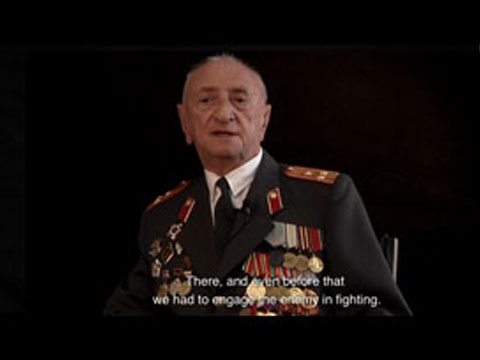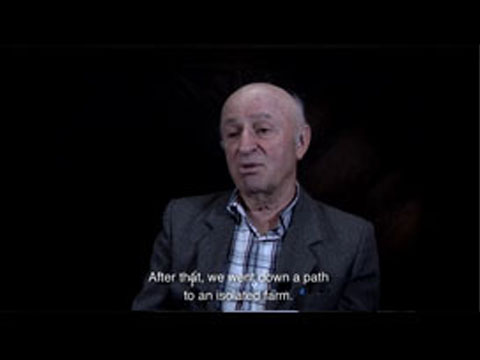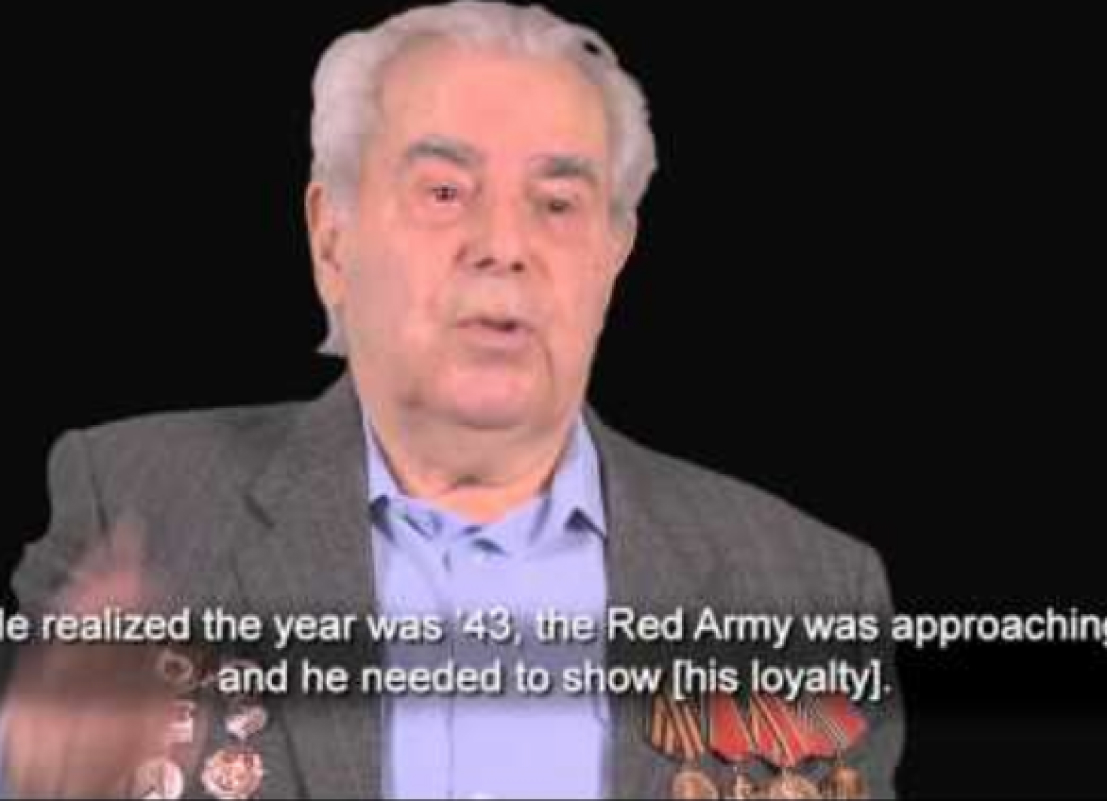
Yurii Iakren
Born March 3 1924 Saratov, Soviet Union
Interviewed In: Vancouver, British Columbia
Medals Awarded: Order of the Patriotic War (1st and 2nd Class) and Victory over Germany In The Great Patriotic War
“We stood by, our guns were firing, and the Germans were firing too.”
Truck Driver, Artillery
Two years after he was born, Lazar moved to Moscow with his family. That’s where he was going to school when the war broke out. “To prepare for the war near every street and every building there was set a barrel with water, sand boxes, and various tools, such as pliers, shovels, in case buildings caught fire.” Before he was drafted Lazar worked at the school where he made “parts for war purposes. All kinds of machine-gun and gun locks, etc. Our trade school was part of a military factory, a defence industry factory.”
Working in a military factory meant that Lazar saw a lot air raids aimed at his place of work early on during the war. “We used to catch those firebombs, at first they used to throw them like pouring rain. Once they fell and burst into flame, we began to pour sand or water to put them out. If there was a flame it was difficult to put out, so we poured sand to prevent it from burning.”
When he turned 18, Lazar was drafted into the army like his older brothers had been. “I was to be trained to be a driver. I became a full-time student at a drivers’ school. We were also trained how to take apart and put together a truck with the help of a technician.”
After his training ended, Lazar was sent to Los, near Moscow. “There were trucks there, broken down trucks, brought from the front line. We repaired them.” Once the repairs were completed, Lazar continued the trip to Moscow where they were given directions to drive to a small town and receive boxes full of shells. On the trip there the “air raids started. We saw German planes flying over our heads, heading to Moscow.” As he drove back and forth during this mission, their trucks slowly broke down and eventually his unit was disbanded and he was send to a reserve regiment where he was recruited to a 3rd offensive artillery.
In August in 1943 Lazar was part of an offensive in the Starye Russy area. “Our guns started firing. Airplanes took off. The town was bombarded all day long. After that, tanks started moving on. All tanks got stuck in the swamps. We stood by, our guns were firing, and the Germans were firing too. Shrapnel was flying all over the place. The offensive failed, and an order was issued to retreat to the previous lines.“
The retreat caused Lazar’s regiment to become surrounded in the town of Nevel. “We had stayed there for 3 days before the Germans started surrounding us. We had nothing to eat; there was no supply, no nothing. We were starving there for 2 or 3 months.” Eventually however Lazar’s crew drove through the woods to get away, running from enemy fire. One of the trucks ahead of him exploded, and Lazar found himself buried under stones and trees where he was found and rescued. After a six month stay in the hospital, Lazar was sent home to live with his mother and father as a war invalid.
Lazar moved to Canada in 1990 with his wife.

Born March 3 1924 Saratov, Soviet Union
Interviewed In: Vancouver, British Columbia
Medals Awarded: Order of the Patriotic War (1st and 2nd Class) and Victory over Germany In The Great Patriotic War

March 24, 1927 Vitebsk, Belarus
Interviewed In: Toronto, Ontario

Born March 16th 1928 Mink, Belarus
Interviewed In: Toronto, Ontario
Medals Awarded: Order of the Patriotic War (1st and 2nd Class), Medal for Partisan of the Patriotic War (1st and 2nd Class) and Victory over Germany In The Great Patriotic War
Medals Awarded: Order of the Patriotic War (1st and 2nd Class), Medal for Partisan of the Patriotic War (1st and 2nd Class) and Victory over Germany In The Great Patriotic War